MARKETING
Mastering Reddit for Brand Awareness & Reputation Management


First, think of how vast the internet is, and how impossible it is to reach every crack, corner, and crevice.
Now, imagine a place where millions of people endlessly sift through this vastness, promoting what’s worthy of the front page and removing what’s rubbish.
That’s Reddit.
If you’ve spent only a few minutes redditting, you may be thinking it’s a place for cute cats and ridiculous memes…
However, Reddit is also a place for the president, for customer support, and just about anything else you can imagine. Reddit pulls at least two billion unique visitors a month and normally powers thousands of active communities per day, ranging from science, music, and politics to specialties like tech support and homebrewing.
If you are not paying attention to your niche subreddits, you don’t know your audience.
But there is more to Reddit than its own huge audience you need to be listening to. Reddit is getting a huge visibility in Google’s organic search.
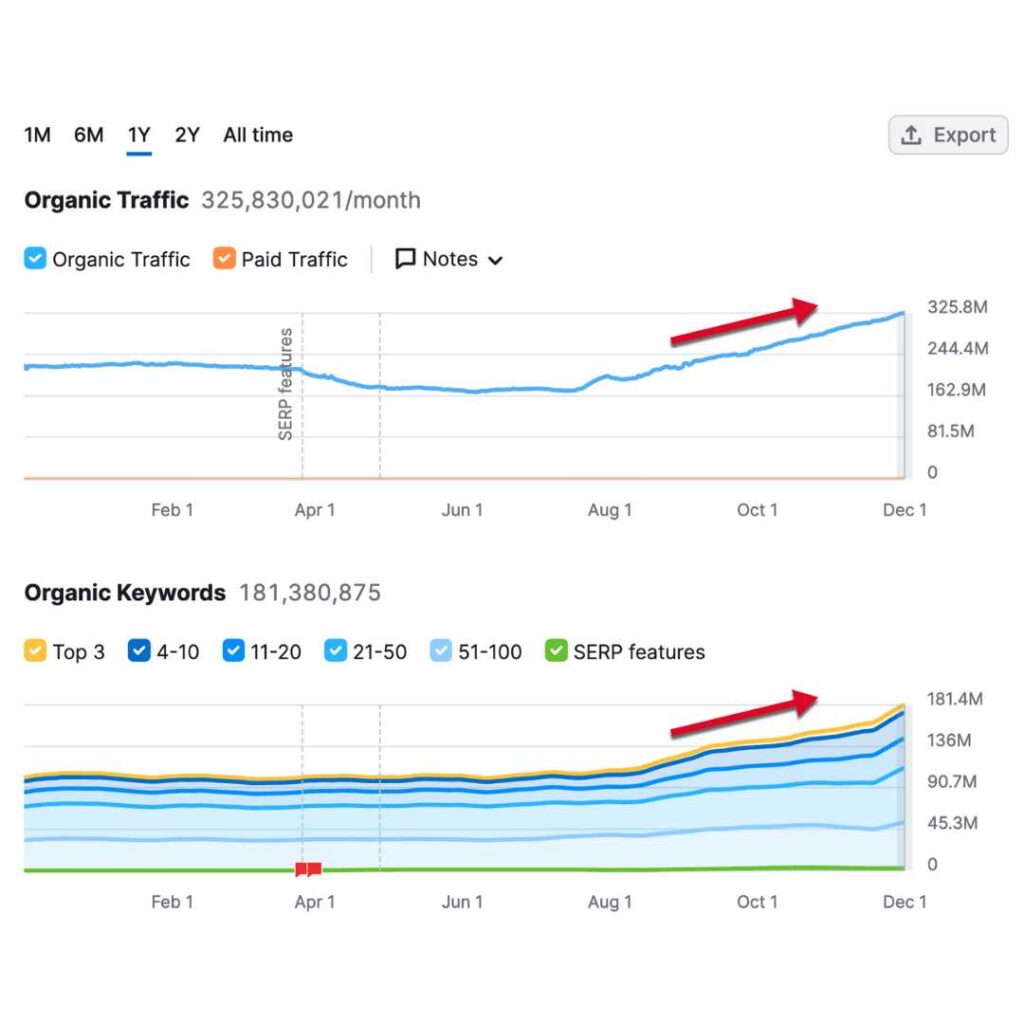

Reddit is becoming an inevitable part of just about any buying journey. Just about any brand triggers [PRODUCT/BRAND NAME REDDIT] suggestion in Google’s Autocomplete results:


There’s also a new SERP feature for Reddit called “Discussions and forums”:
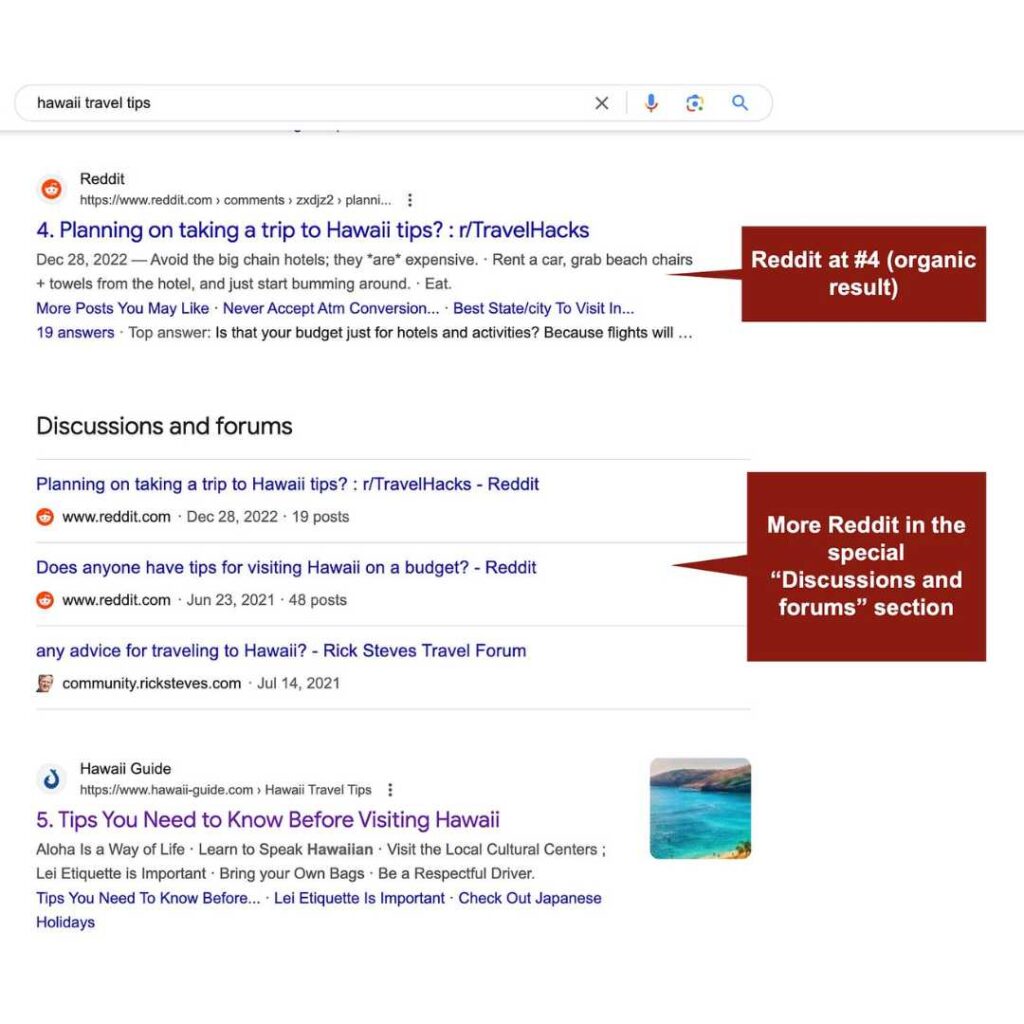

Not being on Reddit means missing this huge organic search opportunity and failing to control this narrative.
Four More Reasons to Use Reddit for Digital Marketing
1. User-testing and New Product Feedback
Do you have a new website or product coming out soon? Is there anything in the beta stage?
Reddit is a great place to get quality (and free) feedback.
Continuing from the previous example, find the proper subreddit relevant to your business. Make sure you are operating within the subreddit rules and guidelines before submitting anything. If you’re unsure, consult one of the moderators by sending them a private message.
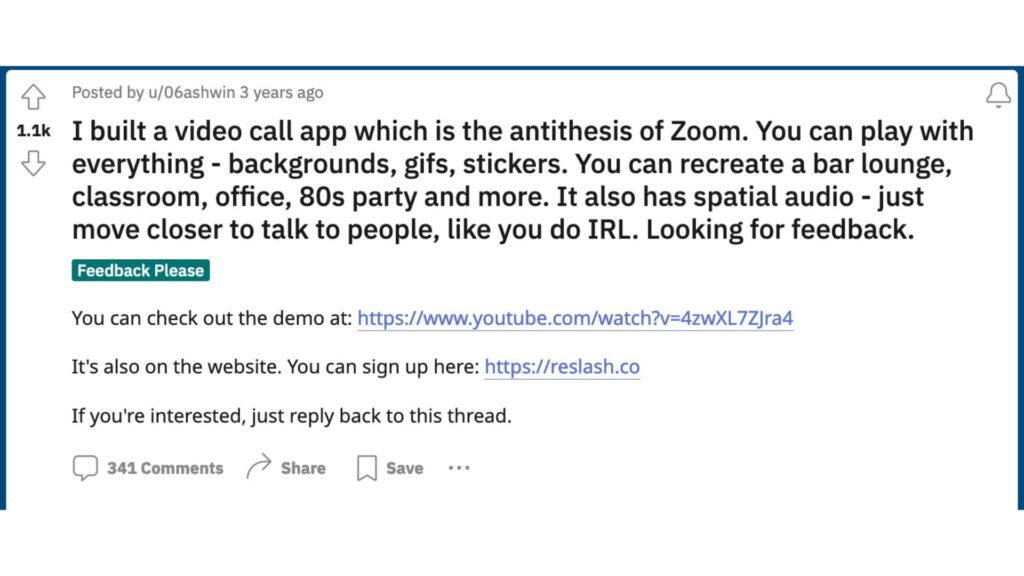

Further down the comment section, we see real feedback:
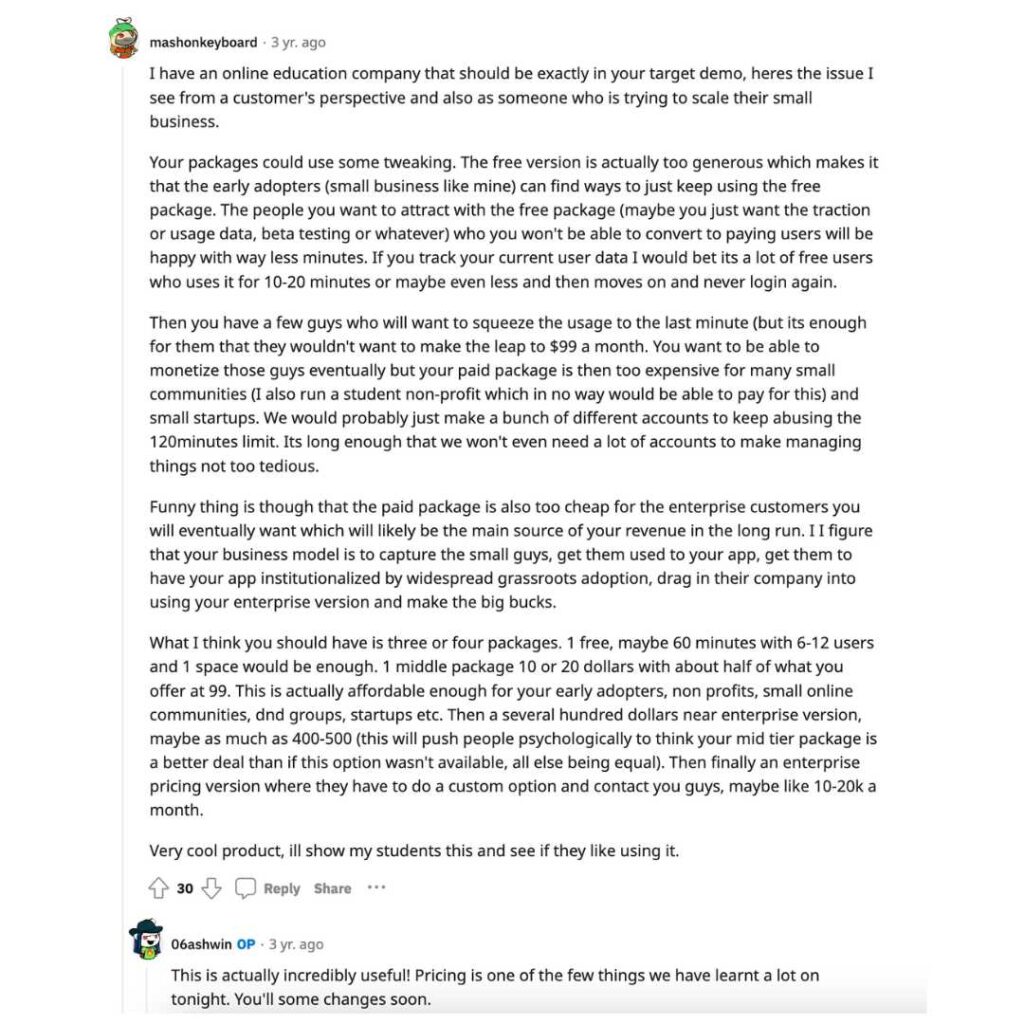

Boom! Redditors are happy to help each other in more niche subreddits – pretty cool right?
2. Extend Customer Service Reach
In the same vein, we can extend our customer service efforts by researching threads where our business or product is mentioned.
Be optimistic – sometimes Redditors are complimenting your service! Find them, thank them, and contribute to the positivity. This ties into increasing brand reputation as well.
A word of caution: do not jump head-first into the comment sections, especially if you’re representing a company. Instead, get your feet wet by observing how people talk about brands and how a representative responds.
Practice reddiquette (which is often different from subreddit to subreddit) and combine this with your observations. There are many stereotypes about redditors, but these only apply to the masses.
When you’re in a niche subreddit it’s much easier to identify the tone of voice and sentimental atmosphere. Plus, we’re able to target potential customers who have already expressed interest in our industry.
3. Community Building
Creating a subreddit (a sub-community) is practical for many reasons. We can create private subreddits for an internal office team or an exclusive community for your clients. Public subreddits allow anyone to view content and comment if you allow it.
With an active subreddit, businesses can provide useful information (such as resources, advice, guides, and feedback) to current and new customers. Expect to see a detailed post on creating and maximizing a subreddit from me in the future.
4. Increasing Awareness
While not every business will adopt a whale and host a naming contest, Reddit is a vast opportunity mine.
Take note of which content gets upvoted the most and ask your team, “Can we do something like this?” If the answer is yes, go for it.
There’s even a subreddit for small businesses where you are allowed to promote your business.
Step 1: Start Monitoring Reddit
Products and brands are being talked about in every corner of the internet. Identifying all of these mentions is a pretty simple process; it just takes a bit of time to set up.
Reddit is an excellent medium for providing current social monitoring tactics to aid in brand management and data collection.
I constantly see social media marketers saying they don’t “get” Reddit. They always say it’s too confusing or a place all businesses should avoid. If you call yourself a social media marketer and you don’t at least acknowledge the value of subreddits, you’re doing something wrong. It’s one of the top 50 websites in the world. The branding, social monitoring, and community benefits are undeniable.
Reddit is a medium that doesn’t have everything spelled out. So, some users give up easily after having a bad experience which could have been avoided if they had invested enough time to learn the social norms and history of the platform. By dismissing the platform, they’re dismissing target audience groups that are:
- already bunched together
- already talking about relevant industry topics
- asking questions YOU know the answer to
There are inside jokes, thematic content (i.e.; weekly contests), in-depth quality discussions, beginners looking for help, and much more. A local business – a plumber or an HVAC, for example – can be incredibly useful on subreddits. It’s an extension of customer service.


You’ve Been Taught SEO ALL WRONG
Become a Certified Search Marketing Specialist and Start Boosting Your Sales by Attracting and Converting Your Ideal Leads Everywhere They Are.
The challenge: Social media marketers and business owners need to be flexible when experimenting with new platforms. Becoming a community member in a subreddit is the perfect way to get started. It’s such a simple concept but it gets twisted when you try to approach it from a traditional marketing perspective.
The benefits of being a contributing member include being able to extract social data, learning more about potential customers, the market, the interests, and demographics, and once you’ve gotten your fill, putting it all together in an accepted form of advertising. Or a contest. Or a game.
Every subreddit is different.
Take advantage of free tools. Here are some useful options:
- Google Alerts and Search Operators + Google Sheets/Excel
- Buzzsumo Alerts
Start off by opening up your preferred spreadsheet program. I recommend Google Sheets because it’s free and in the cloud, but Excel is also fine.
Let’s say your business is a homebrewing supply store – a local business with a large enough operation to handle online orders.
Run searches using site:reddit.com “keywords” in Google. Record each thread link on Reddit that you can contribute to, such as offering expertise, solving a problem, asking your own questions, or being a part of an event/evolving discussion. Then make a column to keep track of which threads you haven’t responded to yet. For more collaboration capabilities, consider using tools like Slack to make Reddit marketing a cross-marketing strategy.
The tools you can use are:
Here’s a screenshot of creating a new alert using Buzzsumo:
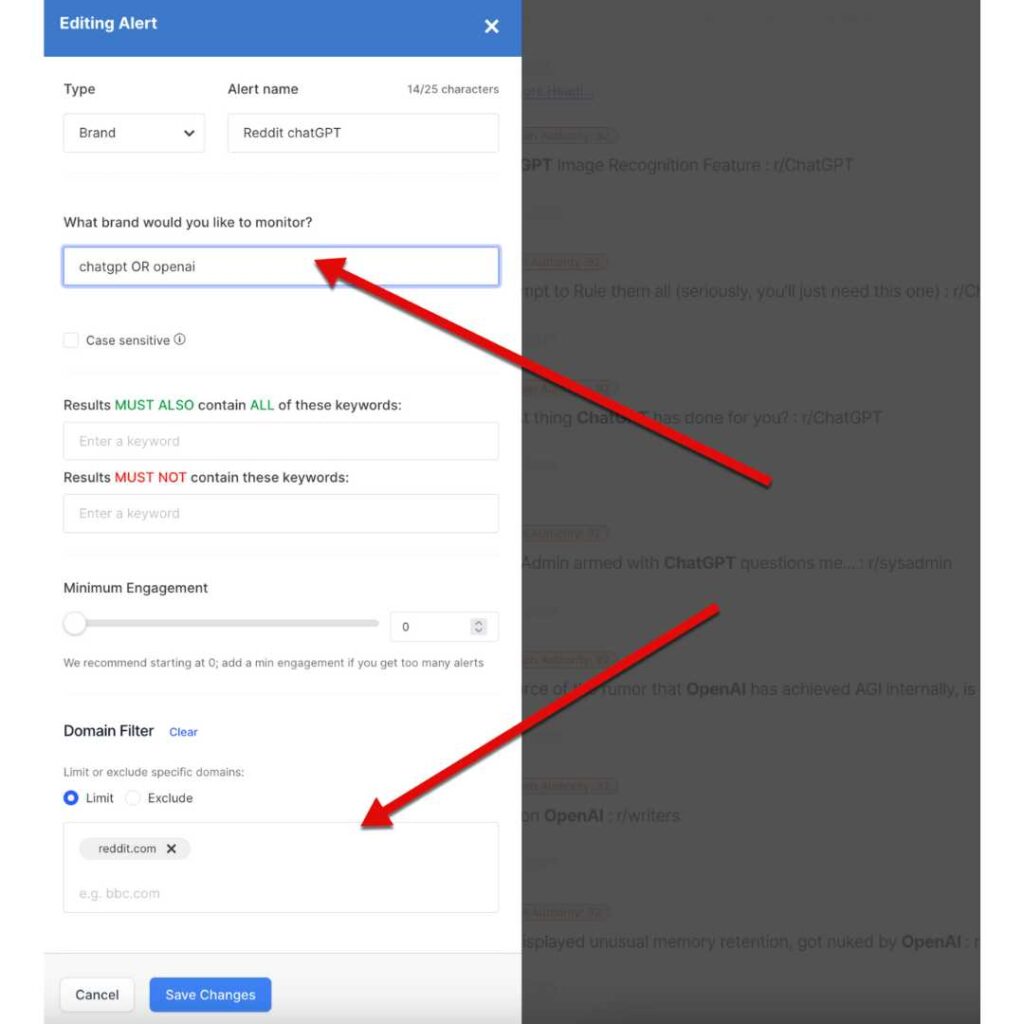

Step 2: Create a Brand-Driven Subreddit
Owning a subreddit is your first step to owning a brand-driven narrative. Luckily anyone can create and moderate a subreddit.
If your customers are going to discuss your product on Reddit, they’d better do it in a space you can control.
Here comes the SERP management benefit of that: This should help you control [your product name+Reddit] results better. Some brands are doing that very well, e.g.:
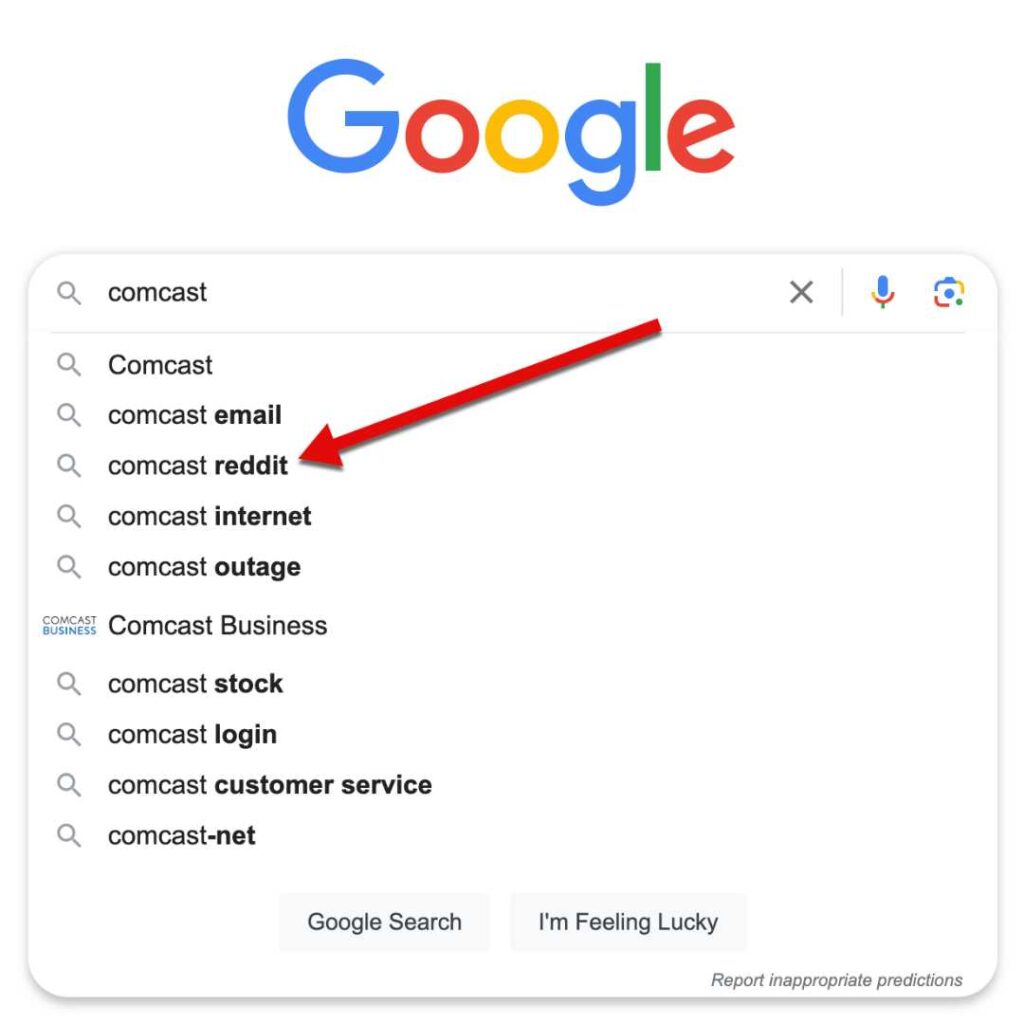

Comcast-driven search triggers “Reddit” suggestion at #2.
As a result, Comcast owns those search results thanks to their official subreddits:
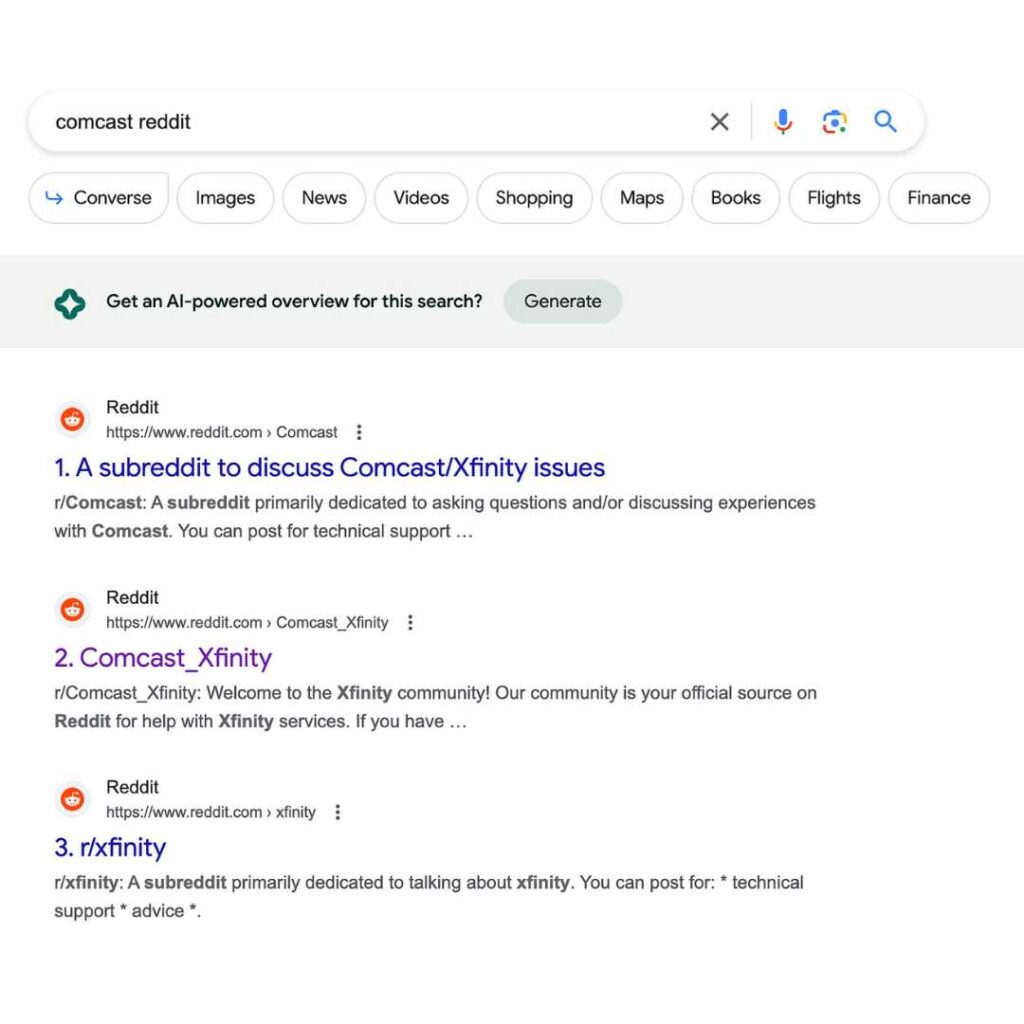

Controlling your brand-driven SERPs is the only way to ensure your customers will end up buying from you. It is your ultimate digital business card.
Additionally, they also successfully show up in Google’s AI snapshot (SGE) answer:
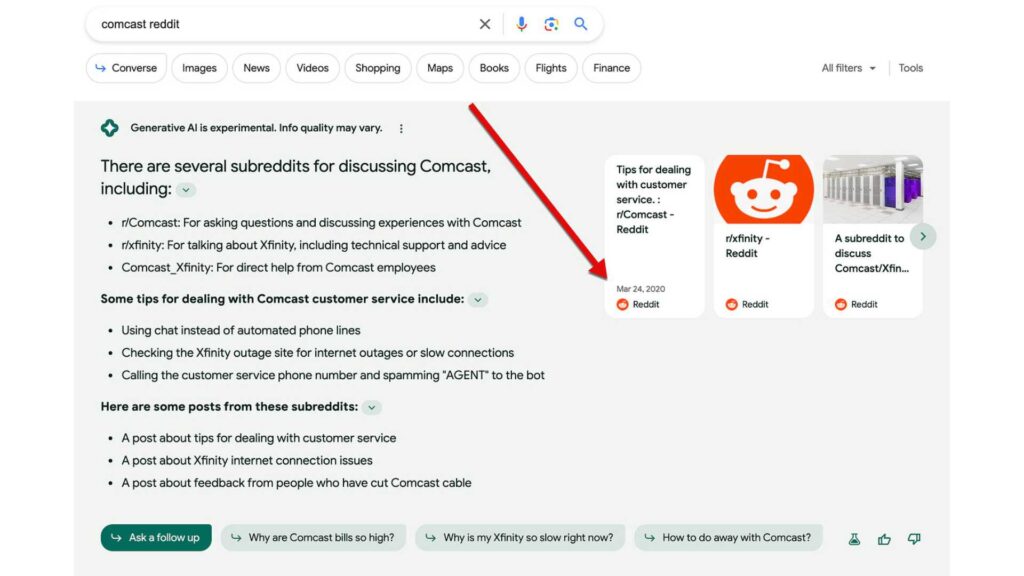

That’s your goal.
It takes time and effort to maintain a quality subreddit but your customer support team will likely enjoy it because it has a rewarding community-building aspect to it.
Make sure you set up your GA4 correctly to be able to measure the traffic from your new subreddit.
Step 3: Participate Outside of Your Subreddit
After you do some thorough reddit monitoring, set up your brand-driven subreddit and learn to talk to your customers in that space, you can start participating outside of it, in other relevant subreddits.
Reply to questions, make comments, and be genuinely active. Consider hosting an AMA (“Ask me anything”) to tell your story, use Reddit for content brainstorming, and learn more about your target audience.
Reddit is great for link building once you get a feel of it and understand what your niche reporters and bloggers are looking for when monitoring Reddit. It is great for competitors’ evaluation, product gap analysis, email marketing strategy and so much more. Stop ignoring Reddit as a marketing tool but approach it with care.
Results
We have been doing all kinds of Reddit analysis and strategy implementation for clients. We managed to control [brand name reddit] search results within 2 months of setting a brand-driven subreddit. For another client, our Reddit-driven viral marketing campaign brought in hundreds of clicks, links and shares, as well as positioned it as a trending search in Google:
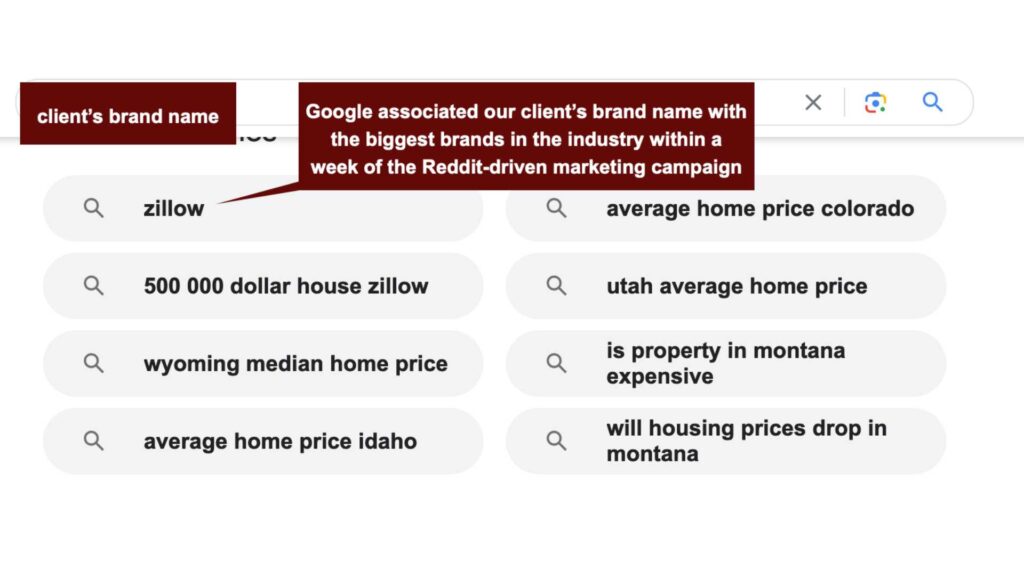

Our client was a brand-new startup that barely produced any results for brand-driven searches. Google associated our client’s brand name with the biggest brands in the industry within a week of the Reddit-driven marketing campaign. This is the strongest signal you can build.
Reddit is one the most powerful tools you can use for brand awareness and beyond!
MARKETING
Tips and Tricks for Digital PR

In the bustling digital landscape of the 21st century, public relations (PR) stands as a beacon of brand visibility, trust-building, and reputation management. As businesses navigate the complexities of online competition, the synergy between search engine optimization (SEO) and PR has become increasingly evident. This article delves into digital PR, exploring how strategic integration with SEO practices can elevate brand visibility, drive organic traffic, and amplify PR success.
The SEO & Digital PR Power Couple
In today’s digital landscape, success hinges on a strong online presence. Two crucial aspects of achieving this are SEO and Digital PR. While they may have functioned as separate strategies in the past, they’re now recognized as a powerful team.
SEO focuses on optimizing your website and content to rank higher in search engine results, driving organic traffic. PR, on the other hand, builds brand awareness and cultivates positive press mentions.
However, creating compelling content that resonates with audiences and search engines can be challenging for many PR professionals. A recent Institute for Public Relations study found that nearly three-quarters (70%) of PR practitioners struggle with content creation. This is where the magic of SEO and digital PR working together comes in.
Combining these forces creates a synergy that delivers impressive results. Effective SEO techniques in PR campaigns can amplify brand messaging and ensure it reaches the right audience through search engines.
Conversely, strong PR efforts can generate backlinks to your website, a significant factor influencing SEO ranking. This teamwork propels brands to industry leadership by establishing online authority and positive brand sentiment.
Optimizing Your PR Efforts for SEO
PR and SEO go hand-in-hand in today’s digital marketing landscape. By aligning your PR activities with SEO best practices, you can significantly boost your online presence and reach a wider audience. Here’s how:
Keyword Research
Just like any successful marketing campaign, PR needs a strong foundation. Keyword research is crucial for understanding the language your target audience uses online. According to Google, more than half of consumers (53%) consult online resources before purchasing a product or service.
This includes potential students researching educational options. For instance, terms like “best online degrees for 2024” can be valuable keywords for online schools to target in their PR efforts to reach potential students actively searching for programs.
By identifying relevant keywords with high search volume, PR professionals can craft messaging that resonates with their audience and increases the discoverability of their content in search results.
Content is King (and Queen)
Compelling and newsworthy content is the cornerstone of any successful PR campaign. But for SEO, it’s not just about capturing attention.
High-quality content, such as press releases, blog posts, and infographics, should also be optimized for search engines. This includes using relevant keywords strategically throughout your content and adhering to on-page SEO best practices. By creating content that is both informative and search-engine friendly, you attract not only readers but also valuable backlinks and organic traffic.
Building Backlinks
Backlinks are links from other websites pointing back to yours. Search engines consider backlinks a sign of trustworthiness and authority.
Strategic PR campaigns can help you secure these valuable backlinks by pitching newsworthy content to relevant websites, building relationships with journalists and influencers, and leveraging social media to promote your content. However, focusing on earning backlinks from reputable sources is crucial, as spammy tactics can hurt your SEO efforts.
Optimizing Media Coverage
Every media placement you secure, whether an article, interview, or social media mention, presents an opportunity to enhance your SEO. Encourage journalists and influencers to include relevant keywords and links to your website in their coverage.
Promoting these media placements on your social media channels can amplify their reach and drive more organic traffic to your website.
Advanced SEO Techniques for PR Success
Today’s audiences crave engaging content; SEO is crucial to seeing your message. Incorporating advanced SEO tactics into your PR strategy can amplify your reach and achieve tremendous success.
Leveraging Multimedia
We’re living in the age of visual storytelling. Eye-catching images, infographics, and videos aren’t just trends; they’re powerful tools for grabbing attention and boosting SEO.
A Demand Metric report highlights the power of video marketing for conversions. 93% of marketers agree that video is just as practical, or even more effective, at driving conversions compared to other content formats.
These elements enhance user experience and provide opportunities for keyword optimization. Descriptive alt tags and strategic file names can help search engines understand your content and improve your ranking for relevant searches.
Data-Driven PR
Gone are the days of guesswork in PR. You can achieve laser focus and maximum impact by integrating SEO data with your PR strategy. Tools like keyword research can help you identify topics and language your target audience is actively searching for.
Analyzing website traffic and other SEO metrics allows you to tailor your content for optimal performance. This data-driven approach ensures you craft content that resonates with your audience and achieves your PR goals.
Collaboration is Key: Aligning SEO & PR Teams
Many companies have separate SEO and PR teams, but these teams should work together closely for maximum impact. By collaborating, SEO and PR can achieve more than they could. Here’s why:
- More robust results: When SEO and PR share information, like keyword research and content plans, they can create campaigns strategically placed in search engines and reach the right audience through media coverage.
- Unified Voice: Consistent team communication ensures a consistent message across all channels, from website content to press releases. This builds trust and credibility with your target audience.
- Measurable Success: Working together allows SEO and PR to track the combined impact of their efforts. This data can refine future campaigns and demonstrate the overall value they bring to the organization.
In short, by breaking down silos and working as one unit, SEO and PR can create a powerful force for achieving your company’s goals.
The Future of SEO & Digital PR
The digital world is constantly changing, and how we approach SEO and digital PR also needs to evolve. Here’s a look at some of the biggest trends we can expect to see:
AI-powered everything
Artificial intelligence (AI) is poised to become a game-changer in SEO and digital PR. AI can help create high-quality content tailored to specific audiences, analyze vast data to identify trends and opportunities and personalize outreach efforts for journalists and influencers.
Voice search is king
With the rise of voice assistants like Siri and Alexa, voice search optimization is becoming increasingly important. This means websites must be optimized for natural language queries and focus on long-tail keywords that people might use when speaking.
Focus on user experience
Search engines are becoming more competent at understanding what users are looking for and giving more weight to websites offering a positive UX. This means creating sites that are easy to navigate, load quickly, and provide valuable and relevant information.
Building trust and authority
Search engines also emphasize Expertise, Authoritativeness, and Trustworthiness (E-A-T) when ranking websites. This means businesses must establish themselves as thought leaders by creating high-quality content and building relationships with other reputable websites.
By staying ahead of these trends, businesses can ensure their websites are visible, and their brands are well-represented in the ever-changing digital landscape.
Beyond the Buzz: Building Lasting Success with SEO-Fueled PR
In the dynamic realm of digital PR, mastering the art of SEO integration is paramount for sustained success. By optimizing PR efforts through strategic keyword research, compelling content creation, and targeted link-building strategies, brands can amplify their visibility, drive organic traffic, and forge lasting connections with their audience.
As we march towards the future, the synergy between SEO and PR will continue to be a guiding light, illuminating the path towards digital supremacy.
MARKETING
3 Contextual Link-Building Strategies That Actually Work

Quality content can get your web pages ranking higher in Google search results. But contextual links can help, too.
Google says the inclusion of relevant, high-quality links signals the content that includes them may be quality content, too.
So, how can you earn contextual links to give your content an edge over the competition? Adopt one, two, or all three of the strategies detailed in this article.
But first, let’s understand what contextual links are.
What are contextual links?
A contextual link appears in the body of a web page’s content. A hyperlink is added to a relevant word or phrase. They:
- Link to other pages on the site.
- Cite the source of a claim or statistic.
- Indicate other relevant pages.
- Provide readers with more in-depth information on the topic.
- Guide readers to a product or service.
In this screenshot of an article with the header, Challenges of Productivity Tracking in Remote Workplaces, three phrases are hyperlinked — measure productivity, Microsoft, and research by Gartner.
Each contextual link serves a purpose:
- “Measure productivity” goes to a Slack article about how to measure employee productivity.
- “Microsoft” directs the reader to the original research for the cited statistic.
- “Research by Gartner” links to the native source for the research cited in that paragraph.
With a contextual link-building strategy, you not only boost your content in the eyes of Google but also encourage other sites to use your valuable content to provide their readers with additional information or context.
Now, let me show you three strategies to grow your contextual links and improve your content’s rankings.
1. Help sites fix their broken links
Broken link building involves contacting a website, pointing out a broken external link on a page, and suggesting your content as its replacement.
Broken links could result from a 404 error, a blank page, or a redirect to an irrelevant page — any alteration that ruins the original link’s purpose.
Since broken links negatively affect the visitor experience, removing them is in the site’s best interest. Your replacement offer gives them a quick solution to their problem. Plus, people are more willing to help you after you’ve helped them.
To find broken links, use a tool like Free Backlink Checker extension. I also like to inspect links manually since most tools only pick up 404 errors. Rely solely on them, and you will miss relevant broken-link opportunities.
Ahrefs also has tools for finding broken links. Its free broken link checker is helpful, but the paid version is more robust.
Paid subscribers can go to Site Explorer, go to the Outgoing Links report, and click on “Broken Links” from the dropdown menu.
The report identifies the total number of broken links (3,136 in the example below), the referring pages (the URL for the content including the broken link), the anchor (the words hyperlinked in the content), and the link (the URL that no longer directs to a viable page).
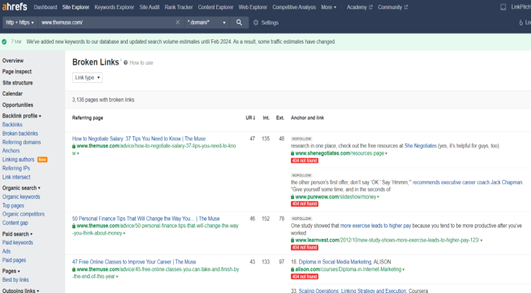
Ahrefs subscribers can also compile a Best by Links report under the Pages option in the Site Explorer tool.
In this example, the report lists pages with 404 page-not-found errors for TheMuse.com. It has 6,230 pages with broken external links. Each page URL listed is accompanied by the number of referring domains and a number of links to the page.
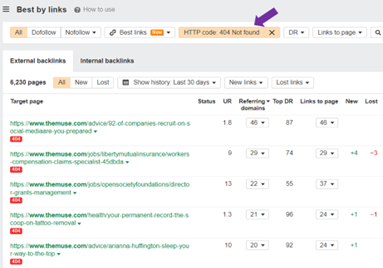
This research can identify the topics with the biggest potential to become the fixes for a broken link. You can create content to address them or identify content you already published. Just make sure the content closely matches the intent of the anchor text’s original link.
For example, the same research report, which is now a broken link, is cited in articles from Oyster and TINYpulse. On Oyster, the anchor text reads, “44% of companies did not allow remote work.” On TINYpulse, the anchor text says, “only 33% are very satisfied with the level of trust in their organization.”
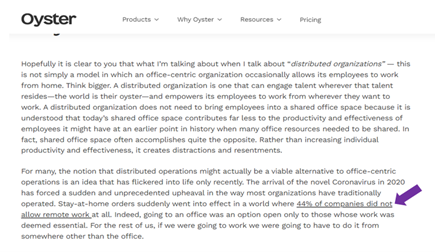
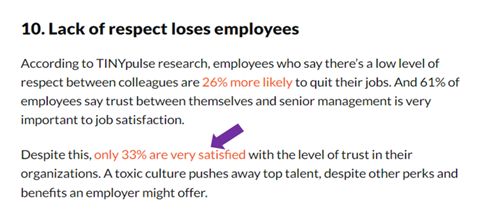
For a single article link to replace the broken link on Oyster and TINYpulse, the content would need to cite both a statistic about remote work and another stat about trust in organizations.
2. Guest posting
Like the broken-link replacement strategy, guest posting benefits both your and the recipient’s sites. You reach out to sites and offer to write content about a topic relevant to their audience that relates to your content subjects and includes a link to your site. This technique works well because you typically control where and how to add your link to make it as relevant as possible.
You can take multiple approaches to win guest-posting opportunities. No matter which tactics you use, track the sites and verify the site’s quality using Ahrefs, another tool, or a direct visit to the site.
First, you can use Ahrefs (or a similar tool) to examine your competitors’ backlinks and identify any links that come from guest posts. The anchor or surrounding text might hint at its status with phrases such as “contributed by,” “guest post by,” or the name of the brand or author. You also can check links manually to see if they’re contributed content.
In this example from Collegiate Parent, the headline reads “EFC Too High? Tips for Successful Aid Appeals” and includes a byline for “Billie Jo Weis.” At this point, you don’t know if it is a contributed article.

But scroll down to the end, and you can see the author’s bio. It confirms the article is a guest post because her bio says she is a client services advisor for My College Planning Team, not the publisher (Collegiate Parent).
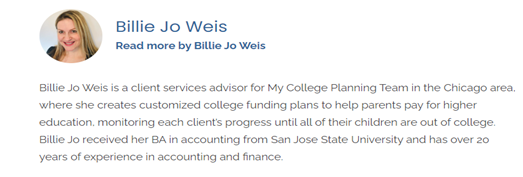
You can also use Google search operators to identify sites open to guest contributions. You’ll want to do several searches using variations of your target keywords and topic accompanied by phrases, such as “guest post,” “contributed by,” “guest post by,” and “guest posting guidelines.”
The example in the screenshot below works for a brand targeting college prep topics. The search is “’college prep’ ‘guest post by’ -site.pinterest.com.” The results reveal four articles from four sites that use the words “college prep” and “guest post by.” You can add those sites to your outreach tracker.

Finally, you can list sites relevant to your niche that didn’t appear in the earlier searches.
TIP: Not all sites that accept guest articles say so on their website.
3. Niche edits
A niche edit, sometimes referred to as a link insert, is a technique that adds a link to existing content. The key to success is finding relevant articles on high-quality sites and pitching your content as a valuable addition to those articles.
You can use a similar process to the Google guest post search. Input a broad keyword for your targeted keyword, then tell it you don’t want the targeted keyword in the title. If the entire article is about your targeted keyword, your chances of getting the publisher to include a link to a similar article are low.
Here’s an example from one of our client’s that sought to make niche edits for the keyword “soft skills.”
The Google search included these phrases:
- “Organizational development” soft skills -intitle:”soft skills”
- “Organizational development” soft skills employee training -intitle:”soft skills”
- Soft skills employee training -intitle:”soft skills” organizations
It led to an added link for “soft skills” in this article — “Employee Development,” which includes the header, “What are the benefits of employee development for an organization?”
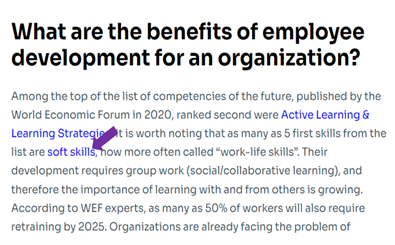
You can do several searches, modifying your search operators each time to see what sites and content appears. Think of multiple angles to broaden the potential sites that publish content with your targeted or a related keyword.
After you’ve crafted a list of high-quality prospects, it’s time for outreach.
Niche edits might be the hardest of the three strategies to achieve because they’re not as clear of a win-win situation as the other two (repairing broken links and publishing new content).
Your email pitch can make or break your niche-edit campaign. It must convince the publisher that your content provides so much value that they will want to take an extra step with content they’ve already completed.
Here are some tips to craft a link-earning email pitch:
- Start by mentioning something about them. It could be something you like about their website or the article you’re targeting. You want them to know you’ve explored their site and read the article. But don’t overdo it. A simple compliment or sentence about how you found the article helpful should suffice.
- Introduce your content and mention how it can help their audience. Be concise and convincing, but don’t oversell it.
- Go one step further and point to a section or sentence where you think your content might be a good fit. This will help them see where your content can add value and link to it.
Get linking
Though contextual link building may seem challenging to execute, it can bring great rewards. Follow these tips and strategies, and your valuable content will get more attention from external sites and eventually Google rankings where it deserves to be.
All tools mentioned in this article are identified by the author. If you have a tool to suggest, please tag CMI on social.
HANDPICKED RELATED CONTENT:
Cover image by Joseph Kalinowski/Content Marketing Institute
MARKETING
Google’s Surgical Strike on Reputation Abuse
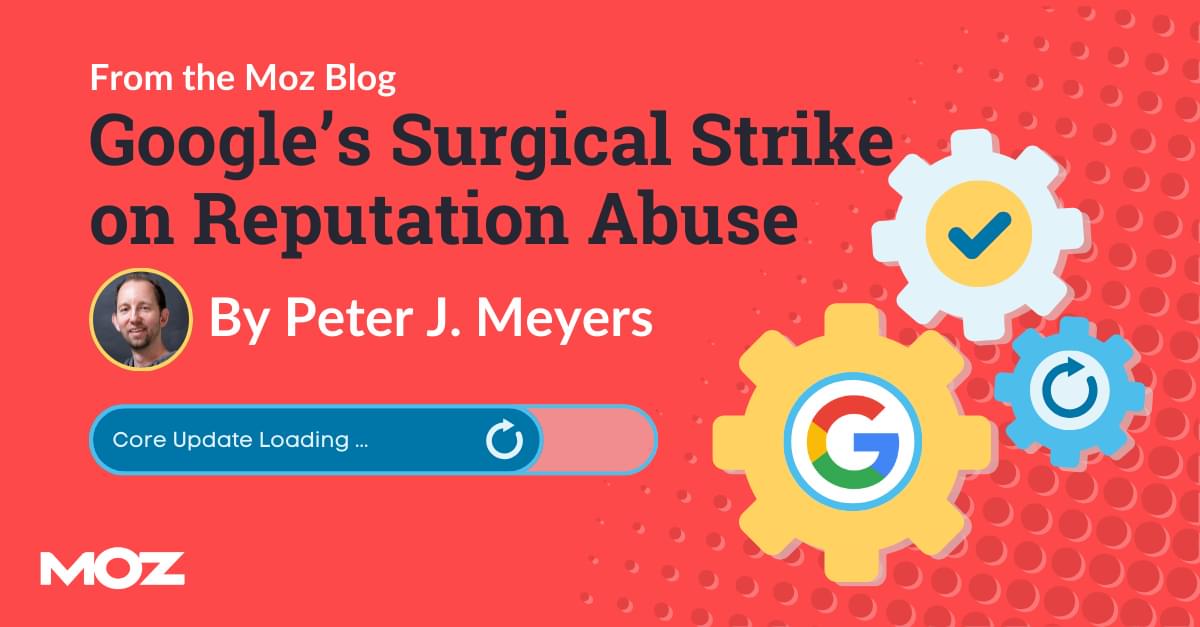
These aren’t easy questions. On the one hand, many of these sites do clearly fit Google’s warning and were using their authority and reputation to rank content that is low-relevance to the main site and its visitors. With any punitive action, though, the problem is that the sites ranking below the penalized sites may not be of any higher quality. Is USA Today’s coupon section less useful than the dedicated coupon sites that will take its place from the perspective of searchers? Probably not, especially since the data comes from similar sources.
There is a legitimate question of trust here — searchers are more likely to trust this content if it’s attached to a major brand. If a site is hosting third-party content, such as a coupon marketplace, then they’re essentially lending their brand and credibility to content that they haven’t vetted. This could be seen as an abuse of trust.
In Google’s eyes, I suspect the problem is that this tactic has just spread too far, and they couldn’t continue to ignore it. Unfortunately for the sites that were hit, the penalties were severe and wiped out impacted content. Regardless of how we feel about the outcome, this was not an empty threat, and SEOs need to take Google’s new guidelines seriously.
-

 MARKETING3 days ago
MARKETING3 days ago18 Events and Conferences for Black Entrepreneurs in 2024
-
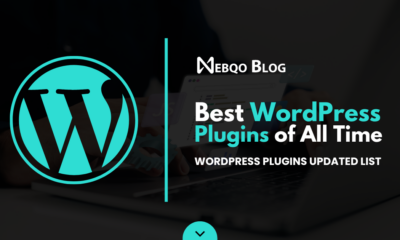
 WORDPRESS6 days ago
WORDPRESS6 days agoBest WordPress Plugins of All Time: Updated List for 2024
-

 MARKETING5 days ago
MARKETING5 days agoAdvertising on Hulu: Ad Formats, Examples & Tips
-

 MARKETING6 days ago
MARKETING6 days agoUpdates to data build service for better developer experiences
-

 WORDPRESS6 days ago
WORDPRESS6 days agoShopify Could Be Undervalued Based On A Long-Term Horizon
-

 PPC6 days ago
PPC6 days agoLow Risk, High Reward YouTube Ads alexking
-
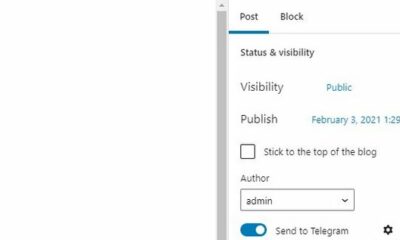
 WORDPRESS4 days ago
WORDPRESS4 days ago5 Must See Telegram Plugins for WooCommerce
-
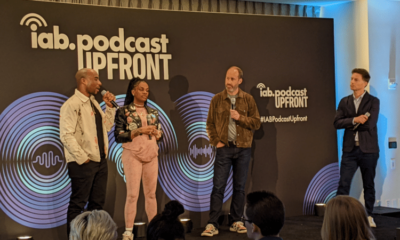
 MARKETING4 days ago
MARKETING4 days agoIAB Podcast Upfront highlights rebounding audiences and increased innovation
















